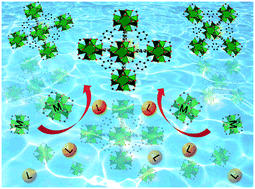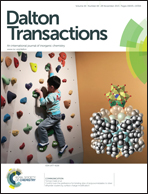De facto methodologies toward the synthesis and scale-up production of UiO-66-type metal–organic frameworks and membrane materials
Abstract
Metal–organic frameworks (MOFs) are architected via coordination bonds between inorganic metal nodes and organic ligands. They have become emerging advanced porous materials and gained ever-increasing attention in the past decade. In particular, overwhelming studies have been devoted to those hydrostable MOFs which are suggested to be highly promising for industrial applications. UiO-66 is such a unique MOF because of its superior thermal/chemical stability and structural tunability. However, its repeatable, green, and scale-up synthesis remains a challenge for its commercialization and implementation in industrial applications. This perspective mainly summarises the recent development in the synthesis of UiO-66-type MOFs and their related composites. From a scale-up viewpoint, we also present some important advances in the batch and continuous reactor synthesis toward their massive production (226 references).



 Please wait while we load your content...
Please wait while we load your content...